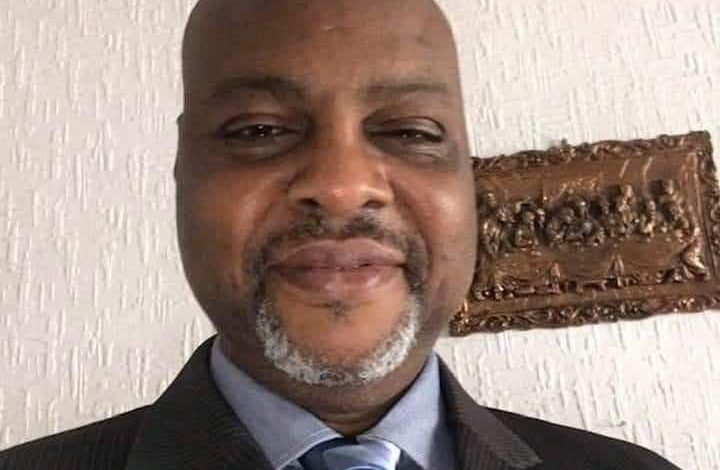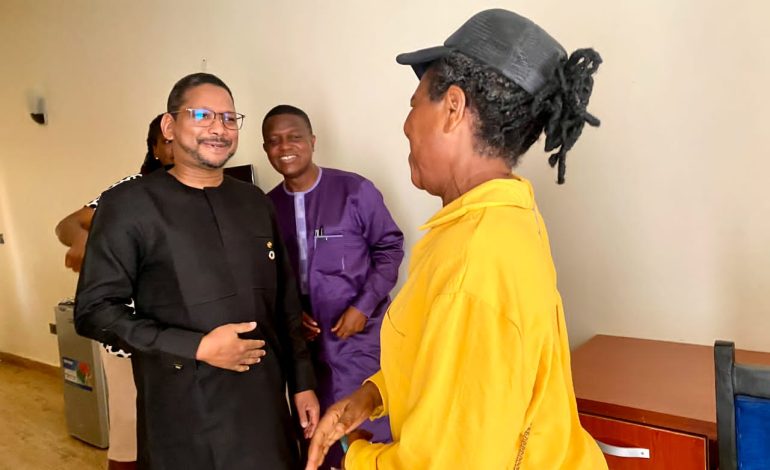The return of Mac

* Remembering a kindred spirit 10 years on
By Uduma Kalu
MAC was a shadow. I mean my shadow, my constant shadow. But the shadow was undefined to many. Some of our members of what is now referred to as the University of Nigeria (UNN) English Class of ‘95, which had perhaps the largest concentration of student writers in any Nigerian university, were astounded by our constant closeness, like a substance and its shadow. What was that shadow? The class did not know. Well, a certain demon held me and Mac together. Prof Obi Maduakor, our lecturer, had defined that demon to be ‘creative demon’, the muse that creates, that inspires. It is selective. It discriminates.
The demon can grip one and forcefully asks one to poeticiise, like a shamman, the impulsive prophet. Those of us possessed by this demon knew ourselves. We were a clan of eccentrics, defined by (John) Dryden as aligned to genius. We were geniuses, eccentrics, delicate like spirits, like ogbanje, those gifted but delicate spirit children constantly caught at the threshold of earth and spiritland, always in the middle of these two worlds of earth and spiritland – the womb.
We were kindred spirits bound by the creative demon. With this demon, Mac and I understood the meta dynamics of our reality such that what could conflict others was a trivia to us. Because we understood the frailties of humanity. That no one is perfect. That forgiveness is the oil that glues humanity. But understanding is key to all these.
And that understanding was deep. It was rooted in African philosophy. That philosophy helped us to resolve conflicts between us, like the one involving a lady, so much so that when his beloved wife tried to intervene, it was clear to her that there was a line between Mac and me that even she could not cross. How did we resolve that conflict? The demon intervened.
Today, Mac returns. And I recall my shadow, my constant shadow.
Almost everyone in the class was a writer. The creative writers’ class introduced by Prof. Ossie Enekwe had helped us greatly. The creative writing class had produced a poetry anthology called Idoto. A roll call today has the following as some insistent writers of our Class of ’95. Damian Uzoukwu, no, not a consistent writer, would, in his free moments, writer unforgettable verses. Chinyelu Nzewi, Kingsley Ozoduru and later became a raggae artist. Some of our members such as MacPhillips Nwachukwu are dead but many are still alive. Nwachukwu had a published collection of poems, So Long a Night. I know his wife, Tina, who is recuperating from an illness, will one day publish his PhD thesis which he had finished writing before his death. His daughter, Adaeze, has followed his steps as a writer.
We had Chika Unigwe, the most accomplished writer out of the class today with award-winning novels such as On Black Sister’s street, The Middle Finger, Never Late Than Never, Fata Morgana, The Phoenix, Born in Nigeria, Obioma Plays Football, Short Stories by 16 Nigerian Women, Night Dancer, Teardrops, A Rainbow for Dinner, Amaechina: An Essay from the Collection, This Our Country.
Dokubo Goodhead has just published his debut poetry collection, Mourning. Eddy Archibong, among two previous books, is out with his Season of Flowers, Kennedy Onyenma has his Okezie Victory Chibuikem Ikpeazu: A Fescript. Uduma Kalu, well anthologized, has three published collection of poems – Christopher Okigbo: A Post Humus Collection of Poems, Life Sentence, and Men from Space. He is also a leading journalist as was Mac, who joined the media too as editor of Vanguard Arts Desk. Charles Abah, though not a creative writer, was literary critic and accomplished journalist. Tony Unodiaku is an ace literary critic. There was Maxwell Azubuike Oditta, also a journalist with several unpublished collections of poems and short stories. He wrote introductions and prefaces to several books. His reports and columns were deep and historical. We hope one day his family will publish them. He has also joined his ancestors.

MacPhillips Nwachukwu
Then Fidelis Uche Okoro. He became a lecturer in English at the University of Nigeria. A first class brain like Goodhead, Okoro was also a moviemaker, one of the pioneers of what is known as Nsukka movies with the adaptation of the local Nsukka dialect that produced rave movies as Nkoli Nwa Nsukka.
Okoro was a musician and poet, too. A theatre owner that groomed many thespians, Okoro published plays including Wisdom of the Ostrich, Joys of War, Prof. Zenzi’s Last Rehearsal and Quagmire. In prose, he wrote the Rape of Regina and Cracking the Shell. In poetry, he published Apples of Gold, A Pageant of Modern Nigerian Poetry, When the Bleeding Heart Breaks and Pimples and Dimples. Accomplished academic, Okoro was well published in learned journals some of which he edited. His music productions include Kabaleka and Call on Me. His first Nollywood movie is Saved by Sin. he has since passed on as well.
Unoma Azuah, also a professor in the US as are Chika and Goodhead, though not in the main bona fide member of the class, however, took courses with us as remedial for her year two class which she joined from her previous department, Archeology. Unoma has gone on to publish books of poetry, essays, novels and short stories.
There are still those whose books will soon be published. They include Lawrence Aluu, who also played several roles in some Nollywood movies, as did Uzor whom we called the ‘Underground Man’. Portia Echendu and Chisia Eboe-Osuji are also waiting in the wings. Ngozi Nkoro has several plays and poems published as is Charity Chimeziri Ogbedeto, who is also warming up to get published. She is already anthologised.
Even though we shared the demon together, Mac sometimes was afraid for me. I remember that afternoon on the staircase of Abuja Building, a very beautiful edifice for Faculty of Science at UNN. I was discussing an idea which I told Mac would form a new collection of poems. Mac warned me to be careful, so that I would not go mad. The idea was about a personage who journeys into the spirit land to get a treasure and back. His exploits and experiences were to form the collection.
Mac was in a way referring to what my classmates called me. Actually, my class called me ‘The Mad Poet’, following my poem which I titled ‘The Poet is Mad’, elicited so mush uproar in the Ansah Building when it was posted on a noticeboard on which writers pasted their works for criticism. Readers would scribble on the paper their opinions and suggestions. Thereafter, we would take back the papers and effect corrections.
Mac was actually disturbed by stories of spirits. Okigbo’s poetry appealed to him, not just because of the folkloric tradition but the dominant motif of the spirit child. Mac was sure Okigbo was an ogbanje, a spirit child who cried with haunting lines. He told me a story about his sister called Nwanyi Sunday. She had died mysteriously. Mac was afraid of those things and feared also for himself. His would later write a poem called ‘Sunday Mourning’ in remembrance of Nwanyi Sunday.
I remember these things, including Mac’s responses to my criticism and my poetic response to him now online. The collaboration between Mac and me in the making of Nigeria’s digital literature will be a story for another day. But as it seems, it’s morning yet on Mac’s stories. And his shadow is still growing.
* Kalu, a poet and journalist, wrote in from Umuahia



